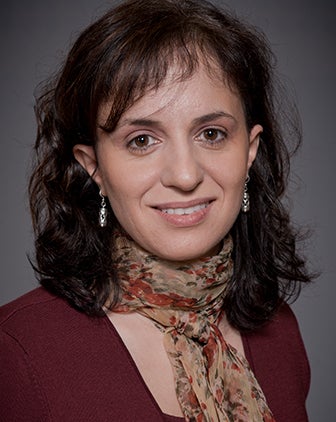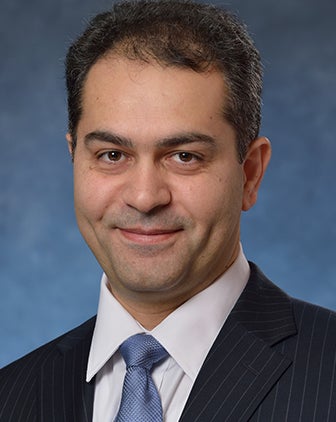
Subscribe to Pittwire Today
Get the most interesting and important stories from the University of Pittsburgh.Lebanese Faculty React to the Beirut Explosion
A pair of explosions, allegedly caused by a cache of ammonium nitrate, rocked the city of Beirut on Tuesday, Aug. 4. More than 750,000 people live in the parts of the city that were damaged, and more than 250,000 have been displaced. The explosion killed at least 135 people and injured thousands more.
In addition to the immense emotional toll, Beirut’s governor estimates that the blast cost billions of dollars in damage.
Two University of Pittsburgh faculty in the Swanson School of Engineering recall their time in Beirut, the “Paris of the Middle East,” and ask for support for their struggling home country.
“Lebanon is a small country, but the people and the food are amazing,” said Rakié Cham, associate professor of bioengineering. “People in Lebanon are survivors. Despite the civil war and one crisis after another, they like to have fun and live life to the fullest.”
Cham (ENGR ’00G) was born in Beirut and lived in Lebanon until she was five years old. Because of the civil war, her parents moved to Dakar, Senegal, where they lived in a Lebanese community. She continued to visit her family in Beirut during their yearly summer vacation. At Pitt, Cham studies balance, gait and sensorimotor control.
Wissam Saidi, associate professor of mechanical engineering and materials science and Cham’s husband, was born in Lebanon and grew up there before moving the U.S. in 1999. Saidi’s research group at Pitt studies simulation tools to understand, predict and design novel materials for applications in energy conversion and storage, surfaces and interfaces, spectroscopy and nanoparticles.
“The past couple of years have been particularly difficult in Lebanon,” he said. “It is one of the worst economic crises, there is corruption in the government and COVID-19 cases are on the rise.
“There were many protests in the streets, suicide rates were increasing and many people resorted to looking for food in the city trash,” Saidi continued. “The country was on the verge of collapse, and that explosion did it.”
Hospitals that were already grappling with medical supply shortages must now find a way to treat thousands of injured individuals during economic turmoil and a pandemic.
“Four main hospitals have been damaged by the explosion making it really difficult to treat patients and overwhelming the healthcare system,” said Cham. “People of Lebanon went through civil war and much more, but they haven’t experience anything like this explosion.”
To support disaster relief for those affected by the explosion, Cham and Saidi suggest donating to the American National Red Cross or the Lebanese Red Cross.
“In addition to the causalities, missing and injured people, homes have been damaged and businesses are destroyed,” said Saidi. “It’s a catastrophe. Donations to the Red Cross and spreading the word to others can help. Every dollar counts.”



